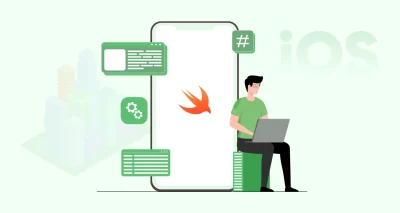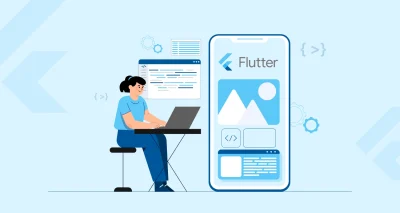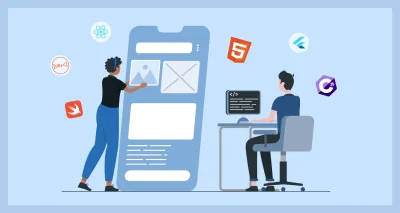

Thanks to integrated secure payment gateways the users of websites and mobile apps can safely carry out transactions while businesses can enjoy streamlined business conversions. CMARX is the leading payment API integration service provider empowering enterprise websites and mobile apps integrate fully PCI compliant payment gateways from all around the globe.

Integrating payment gateway APIs allows you to provide your web and mobile app users an easy way to carry out online payment and transactions right from within the website or app. This also reduces the efforts for making payments and transactions while allows optimum security for the transactions. The integrated payment APIs also help easier business conversion for the e-commerce and business websites and apps.
With the CMARIX payment API integration services an enterprise can easily incorporate payment solutions and gateways into its web and mobile apps. While you take care of your business plans, we take care of the payment API integration tasks.
We Provide
Numbers That Speak Our Power
Integration Experts
Years Of Experience
Payment API Integration Projects Completed
Custom API Integration Projects
We at CMARIX deliver state of the art payment gateway API integration services for business websites, e-commerce stores and mobile apps. Our payment API integration service helps you integrate all major banking solutions and digital payment gateways with ease.
Do you need to integrate payment gateways and APIs that help with multiple banking and non-banking payment methods? We at CMARIX provide API integration service that takes care of your custom needs while maintaining industry-recognised security and compliance norms. We also take care of the maintenance and updates for the entire life cycle.
Quick Look

NUTRANEXT TM is a leading GMP-certified manufacturer with 30 years of leadership in supplement.

CRUSH(Stryker) is a global Clinical Trial Management Platform in United States.

Nest Bank is an advanced online banking platform for customers in Nigeria.
All about our
Take a look at
The payment integration API is a software interface that facilitates the connection and interaction between different applications or systems and payment processing services. It allows seamless integration of payment gateways into websites, mobile apps, or other platforms, enabling businesses to securely accept payments from customers.
By leveraging the payment integration API, businesses can streamline their payment processes, enhance the customer experience, and securely process payments, making it a vital tool for modern e-commerce and online businesses.
Integrating online payment on your website is a simple process.
If you need help, consider partnering with an experienced web development company like CMARIX for smooth integration and support.
At CMARIX, we support integration with a wide range of popular payment gateway APIs, including:
Our skilled developers can help you seamlessly integrate the payment gateway of your choice into your website or mobile app. We ensure a smooth and secure payment process for your customers.
If you have a specific payment gateway in mind or need assistance in selecting the right one for your business, please get in touch with us and we'll provide you with the help you need.
The programming languages or frameworks required for implementing a payment API depends on the specific payment gateway and technology stack of your application. Popular programming languages like Python, PHP, Ruby, Java, and Node.js are used commonly, and many payment APIs support RESTful APIs, making them compatible with different languages.
At CMARIX, our experienced developers are skilled in multiple programming languages and frameworks, which enables smooth integration of the payment API that aligns with your business requirements.
The API commonly used for payment integration is known as a Payment Gateway API. Payment gateway APIs enable secure and seamless communication between your website or mobile applications and the payment processor, which allows you to process online transactions and accept various payment methods from consumers.
Payment gateway APIs handle the encryption of sensitive data and facilitate the transfer of payment information. This ensures a smooth and secure payment experience for both the business as well as the customers.
An example of payment integration is when you shop online and use a credit card to make a purchase. During the checkout process, the website communicates with the payment gateway API to securely process your payment information and authorize the transaction. The payment gateway then sends the payment details it received to the payment processor and the issuing bank for approval. Once the payment is approved, the funds are then transferred from your account to the merchant's account, completing the transaction. Payment integrations like this enable safe online transactions, while providing a convenient shopping experience to the customers and ensuring smooth payment processing for businesses.
Selecting the right payment gateway for your business is essential for a seamless and secure payment process. To make the right choice, follow these steps:
By considering these factors, you can select the right payment gateway that aligns with your business needs and offers a smooth payment experience for your customers.
A payment gateway securely transfers payment information from customers to the payment processor or bank. The process involves encryption of payment data, verification, and authorization. If the payment is approved, the transaction is completed, and funds are transferred from the customer's account to the merchant's account. Payment gateways ensure quick and secure payment processing for online businesses, accepting various payment methods and currencies globally.
Transaction fees associated with Payment Integration APIs typically vary based on the payment gateway or processor they connect to. These fees are generally levied for processing transactions and can be structured in various ways: a flat fee per transaction, a percentage of the transaction amount, or a combination of both. Some APIs might also have monthly subscription fees, setup charges, or other associated costs. It's crucial for businesses to review and understand the complete fee structure, including any hidden or additional costs, before integrating a specific Payment API. This ensures that the chosen solution aligns well with the business model and anticipated transaction volume. Always consult the API's official documentation or the service provider for precise fee details.
Payment APIs handle failed transactions by providing real-time feedback on the transaction status, often through response codes or messages. These codes or messages detail the reason for the failure, such as insufficient funds, expired credit card, or declined by the issuing bank. The API's robust error handling mechanisms ensure that both merchants and customers are immediately informed of any issues. This immediate feedback allows merchants to prompt the user for corrective action, like entering valid card details or trying an alternative payment method. Additionally, many APIs offer built-in retry logic, which can automatically attempt the transaction again in case of temporary issues. Always refer to the API documentation for specific error codes and recommended handling procedures.
Do you have more questions?
Do you dare to bring the change?
Let’s make it possible with our bold solution.



Contact Us
Have questions about your idea? Drop in your details to discuss with our solution consultants. We look forward to hear from you.